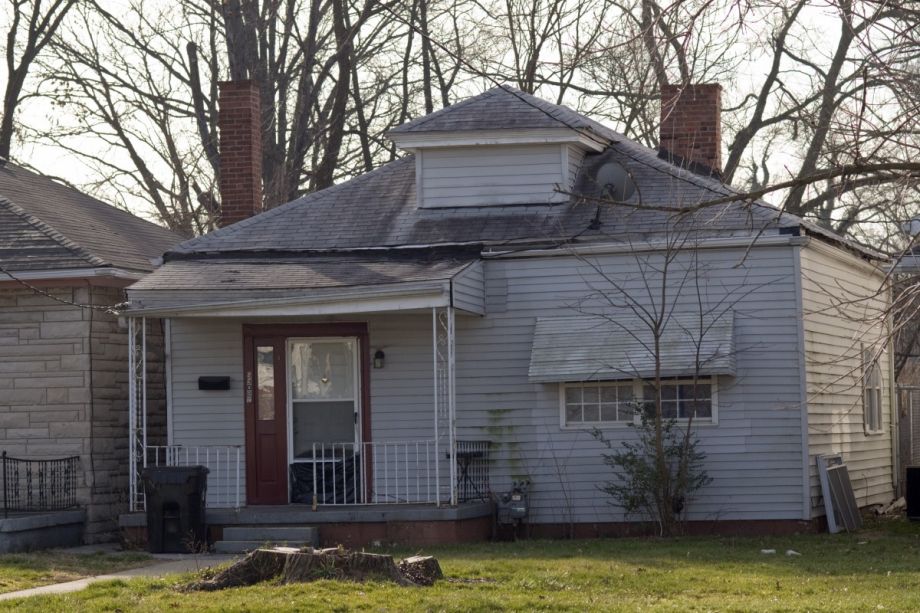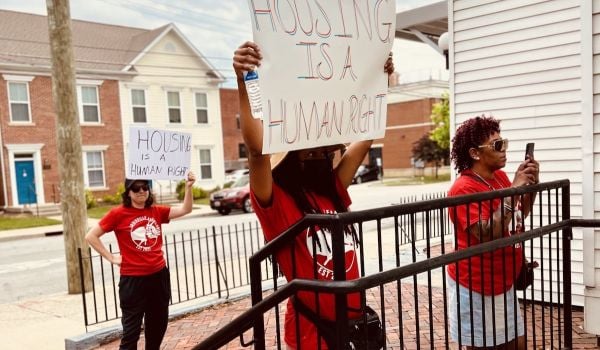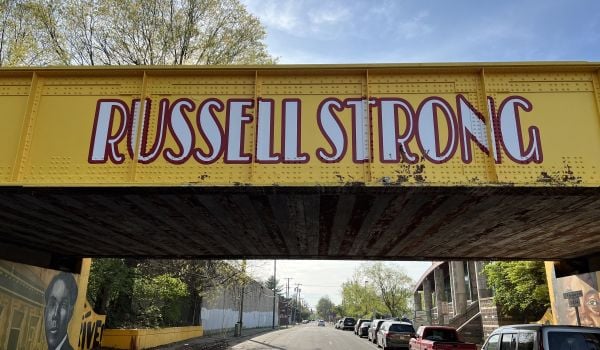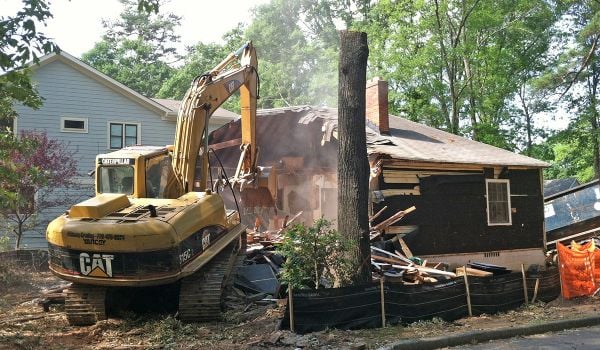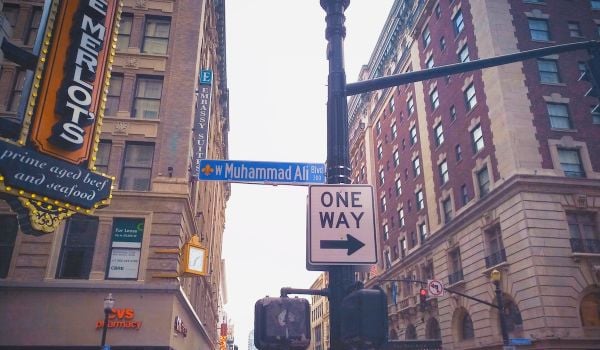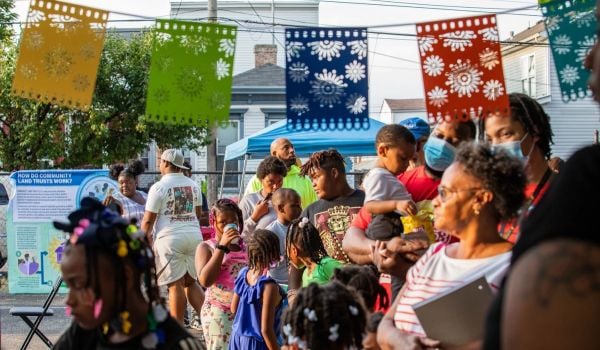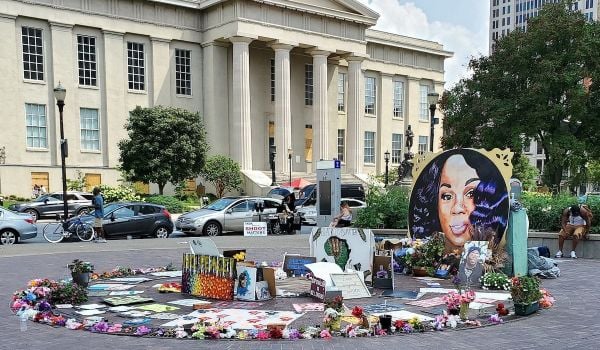The West End of Louisville, Kentucky, was once a part of town where redlining forced black families to settle, after they fled the poor working conditions elsewhere in the rural south during the Jim Crow era. The West End is also the childhood home of Muhammad Ali, who as a child and young man was known as Cassius Clay. Today, Black Lives Matter activists are worried that black families in the West End are being forcibly displaced from the place where, after being forced to live there, they made into homes and communities.
Black Lives Matter Louisville has taken on this issue by starting to purchase vacant homes in Louisville’s West End, renovating them and selling them back to low-income families, Insider Louisville reported yesterday. The effort has started small, just part of the group’s larger work, but it’s meaningful.
“We bought our first home at 644 South 37th Street for $5,000 in January,” says Black Lives Matter Louisville Core Organizer Chanelle Helm, according to Insider Louisville. “And some of the others were donated to us. We have raised about $50,000 so far to buy more homes and help renovate the ones we have now. We are focusing on vacant houses in the West End because that is where these mommas and babies need help.”
As Insider Louisville reported previously, a recent study by the Metropolitan Housing Coalition in Louisville found that the West End is one of the areas where families are at risk of displacement “either by means of eviction, foreclosure or changing neighborhood trends brought about by increased property values and gentrification.”
One particular area is at risk of permanently losing its predominantly black population — the Russell neighborhood, home to the former Beecher Terrace, the largest public housing complex in the county that contains Louisville.
A 2014 PBS “Frontline” special on mass incarceration in Kentucky reported that approximately one in six Beecher Terrace residents cycle in and out of prison every year. As mass incarceration rates increased across all of Kentucky from 2000 to 2009, crime did not decrease — but communities were pushed deeper into poverty by the disruption of education and jobs.
The city has been through a multi-year planning process to tear down Beecher Terrace and replace it with a mixed-income, mixed-use development — just one component of a billion dollars (and counting) that Louisville has invested or plans to invest to revitalize the West End. Officials promised existing Beecher Terrace residents they would be allowed to return. As Next City reported previously, neighborhood leaders have been working to prepare residents of Beecher Terrace and the surrounding Russell neighborhood for the transition period, including credit-building or credit-repair programs to address credit issues that may prevent residents from staying in the neighborhood as revitalization efforts take hold.
“As these men and women are moved out of Beecher once it is demolished, many of them have no credit, or they need their credit repaired in some way or another,” Jamesetta Ferguson, pastor of St. Peter’s United Church of Christ, told Next City. “We currently estimate it takes about 24 months for your credit to be repaired to a level that you can have an adequate chance for ownership or rental, so our goal is to start now.”
But even with better credit scores, another threat may jeopardize the chances of current or former West End residents from owning homes in Louisville — outside investors.
Since 2010, property sales by Louisville’s Landbank Authority have been concentrated in the West End, and the largest buyers have not been residents but rather investor firms that for the most part have kept those homes vacant, according to a report from the Kentucky Center for Investigative Reporting.
“The Landbank is for investors, not people in these poor communities where the vacant houses are located. You need the renovation money in the bank to get one of those houses,” Chanelle Helm told Insider Louisville. “The families we are working with can’t do that. With all of this development going on, the current residents need to be proactive about protecting their communities. We believe housing is a right, not a luxury.”
Indeed, investors are snapping up homes in many cities, putting them on the market as rentals or keeping them vacant as part of a longer-term investment strategy. In New York City, one study found that investors purchased a majority of homes sold in 2017 at prices considered affordable for low- and moderate-income families.
In Miami, “You’ve got all these cash investors going around, buying up homes for $150,000, slapping some paint on there, maybe planting a palm tree and re-selling it for $180,000, probably to another cash investor,” Samuel Diller, executive director of Haitian American Community Development Corporation, told Next City.

Oscar is Next City's senior economic justice correspondent. He previously served as Next City’s editor from 2018-2019, and was a Next City Equitable Cities Fellow from 2015-2016. Since 2011, Oscar has covered community development finance, community banking, impact investing, economic development, housing and more for media outlets such as Shelterforce, B Magazine, Impact Alpha and Fast Company.
Follow Oscar .(JavaScript must be enabled to view this email address)

